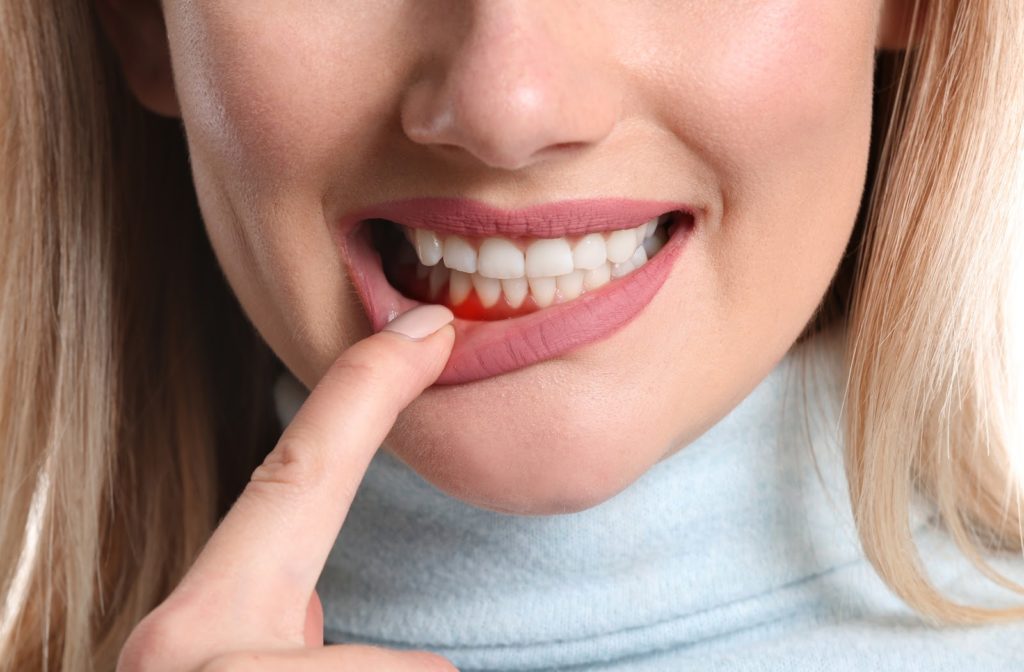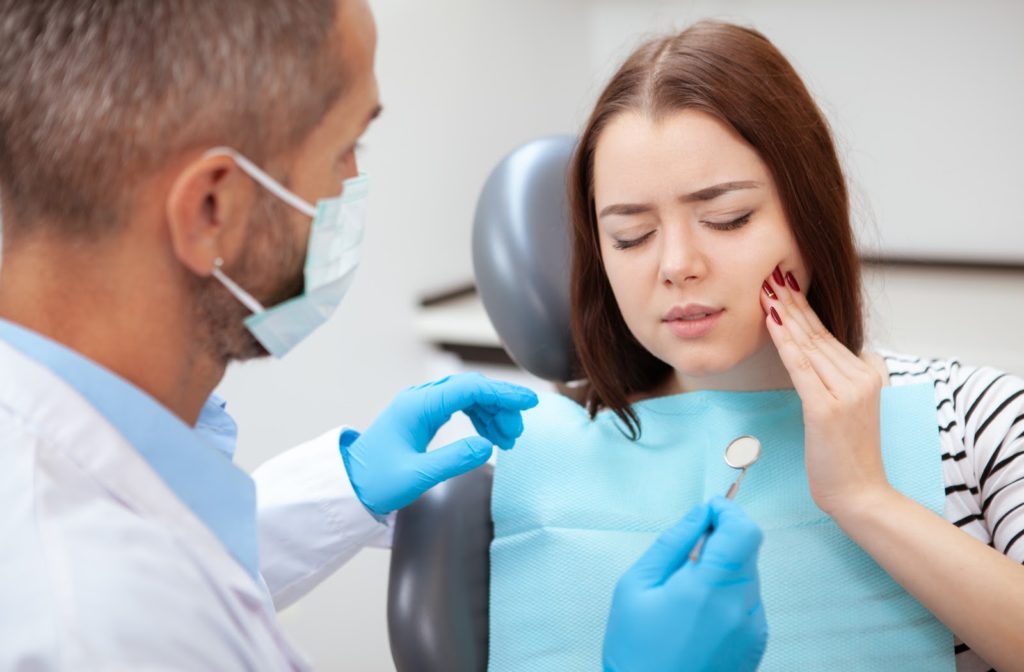Generally, a toothache is the sensation of pain in and around the teeth and gums. Toothaches can arise for many different reasons, and specific treatment options will apply to different causes of tooth pain. Treatment for toothaches can range from simply changing your dental hygiene, getting braces, to having oral surgery. Booking a dental examination is the best way to pinpoint the cause of your toothache and figure out what the best remedy is.
Cavities
Cavities are permanently damaged areas in the hard surface of your teeth that develop into tiny openings or holes. Cavities can form due to poor oral hygiene and bacteria build-up, which will lead to developing plaque. Plaque forms around the outer layer of your teeth, feeding off sugar and starches left behind from improper dental hygiene. Plaque that stays on your teeth can harden under or above your gum line into tartar, which forms a shield for bacteria and makes the plaque harder to remove.
When plaque has formed on your tooth, it will start to erode the enamel that protects the outer layer of your tooth and create holes. This process will continue deeper into your tooth if not treated properly.
Treatment Options
To treat a cavity, you will need to receive a filling from a dentist. You can prevent cavities from forming by properly cleaning your teeth and visiting your dentist for checkups on a regular basis.
Grinding Your Teeth
Grinding or clenching your teeth while you are sleeping or stressed can lead to tooth pain. If you are severely grinding your teeth, it can damage the enamel that protects your teeth.
Treatment Options
Depending on the severity of your issue, you may need to wear a mouth guard or splint while you are sleeping to prevent yourself from grinding and clenching your teeth. If the issue is severe, you may need to receive dental correction, like using crowns, to protect your teeth.
Chipped, Cracked, or Broken Teeth
Direct damage to your teeth can happen for a variety of reasons, and it is important to get this issue addressed if it is causing you significant pain or discomfort. Chipped or cracked teeth usually cause the most pain when you are eating or exposed to hot/cold sensations.
Treatment Options
You may need fillings or complete tooth replacements depending on the severity of your issue.

Gingivitis
Gingivitis is a common and mild form of gum disease (periodontal disease) that causes irritation, redness, and inflammation of your gingiva — the part of your gum around the base of your teeth. It is caused by poor oral hygiene and can lead to more severe gum infections if not treated promptly.
Treatment Options
You will need professional dental cleaning, and possibly dental restoration to treat gingivitis.
Abscessed Teeth
A tooth abscess is a pocket of pus that’s caused by a bacterial infection. Abscesses can occur at the tip of the root, or the gums around the root of your teeth. A periapical tooth abscess (at the tip of the root) occurs when bacteria invade the dental pulp — the innermost part of the tooth that contains blood vessels, nerves, and connective tissue. This type of infection usually occurs due to poor oral hygiene.
Treatment Options
To get rid of the infection, a dentist will need may need to:
Sensitive Teeth & Lack of Enamel
Sensitive teeth are typically the result of worn tooth enamel or exposed tooth roots. Discomfort due to sensitive teeth can come from other factors as well, such as a cavity, a cracked or chipped tooth, a worn filling, or gum disease.
Treatment Options
Depending on the severity of your sensitivity, your dentist may recommend:
- Desensitizing toothpaste
- Fluoride – your dentist might apply fluoride to the sensitive areas of your teeth to strengthen tooth enamel and reduce pain
- Desensitizing or bonding
- Surgical gum graft
- Root canal – if your sensitive teeth cause severe pain and other treatments aren’t effective, your dentist might recommend a root canal
Problems With Fillings
Fillings that solved previous toothaches can wear out and cause your teeth pain once again if not replaced.
Treatment Options
Receive regular checkups with your dentist, and schedule an appointment to replace any worn-out fillings.
Impacted Wisdom Teeth
Impacted wisdom teeth are third molars at the back of the mouth that don’t have enough room to emerge or develop normally. They are the last teeth to erupt in adults and can cause significant pain during the eruption process because in most cases they do not have room to sit in your mouth comfortably.
Treatment Options
If you are experiencing pain due to impacted wisdom teeth, you will need to get them removed through wisdom tooth extraction surgery.
Tooth Eruption
Tooth eruption is when a new tooth is emerging through the gums, and usually causes pain to children when they are receiving their primary teeth and permanent teeth.
Treatment Options
A child may need to get the specific tooth that is erupting removed if it is misaligned or is causing issues with your other teeth. As well, if the child has more permanent teeth than normal, you may need to get the extra one removed.
Misaligned Teeth
A misaligned tooth can cause pain by irritating the gums and putting pressure onto other teeth.
Treatment Options
To fix this issue, you may need to get braces, remove the tooth that is causing pain, or if the issue is severe, you may have to receive oral surgery.


